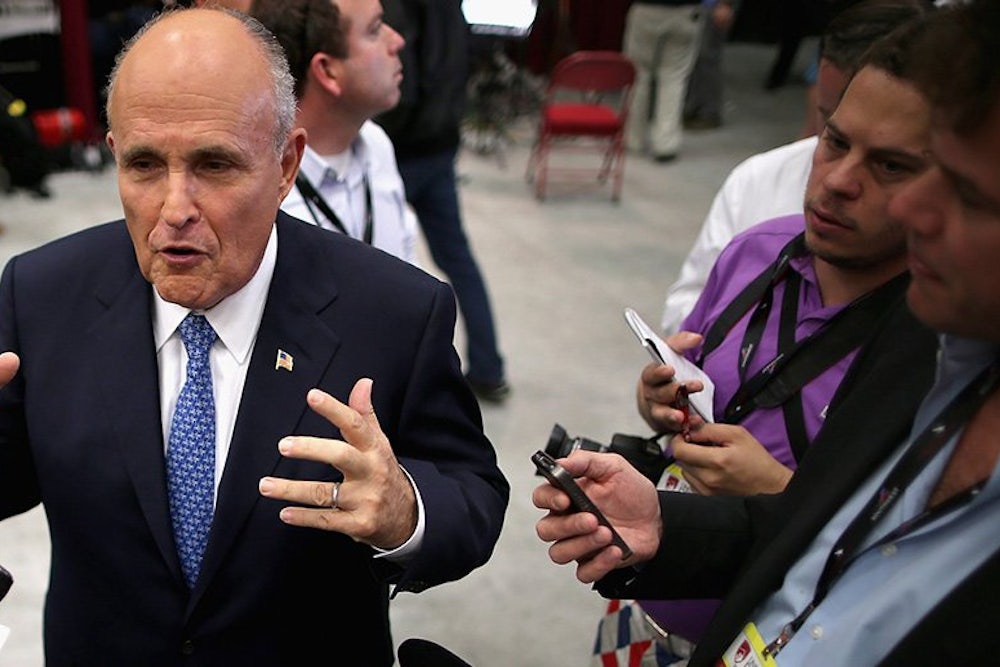There was a time, last decade, when it seemed as though former New York Mayor Rudy Giuliani might have a shot at the White House. He played up his role by inspiring solidarity after 9/11, and presented himself as a small-government conservative who would constrain government to its proper role and limit its influence in the daily lives of citizens. “We’re the party that believes in smaller government and lower taxes,” Giuliani said of the GOP in a 2007 interview. At a separate speech in Washington, D.C., that same year, he emphasized the difference between Republicans and Democrats by claiming Republicans view the economy as "essentially a private economy," while Democrats "really believe, honest, that it is essentially a government economy."
Giuliani didn't get very far in his 2008 presidential bid, but with the rise of the Tea Party since then, anti-government rhetoric is as popular as ever on the right. The idea that government’s role should be restricted mainly to matters of security, with only minimal interference in markets and welfare, is typical of all kinds of conservative politics, and the idea that government activity outside of those parameters is not only impractical, but amoral, is equally common in right-wing thought. Yet in the context of Giuliani’s most recent remarks on President Barack Obama, the idea that the former mayor is interested in a limited, reclusive state seems utterly bizarre.
At a right-wing powwow on Wednesday night, Giuliani said, "I do not believe, and I know this is a horrible thing to say, but I do not believe that the president loves America. He doesn’t love you. And he doesn’t love me. He wasn’t brought up the way you were brought up and I was brought up through love of this country."
For those of us who would like to promote a robust welfare state with a variety of strong, universal social insurance programs, the state is only a means to an end: I would only prefer that America do more to support its poor, its families, and its children because it happens to be the country I am a citizen of, and the one I have a stake in. But the interest is strictly material and strictly incidental: If I lived in some other country, I would be invested in promoting the same types of programs someplace else. On the other hand, it seems that for Giuliani, America is itself an object of outsized philosophical and emotional importance: particular state operations might be noxious to him, but the American state permeates his identity and emotional landscape with an inescapable hugeness.
That is, for Giuliani and the Republicans who have shyly signaled agreement with him, it is America—the very idea of this state—that defines their selfhood, their emotional attachments, their moral sentiments, their love. And yet America is still just a state, among others: The fact that conservative identity is so wrapped up in the numinous notion of America suggests a strange relationship to their purported philosophy of small government. After all: States are temporary, they change, they are material organizations meant to confer certain material benefits. At least, that would be a limited view of government. Whatever Giuliani’s understanding of the American state is, it can’t honestly be called limited, no matter how low he would push taxes or how many programs he would cut, so long as it dominates so much of his soul.
